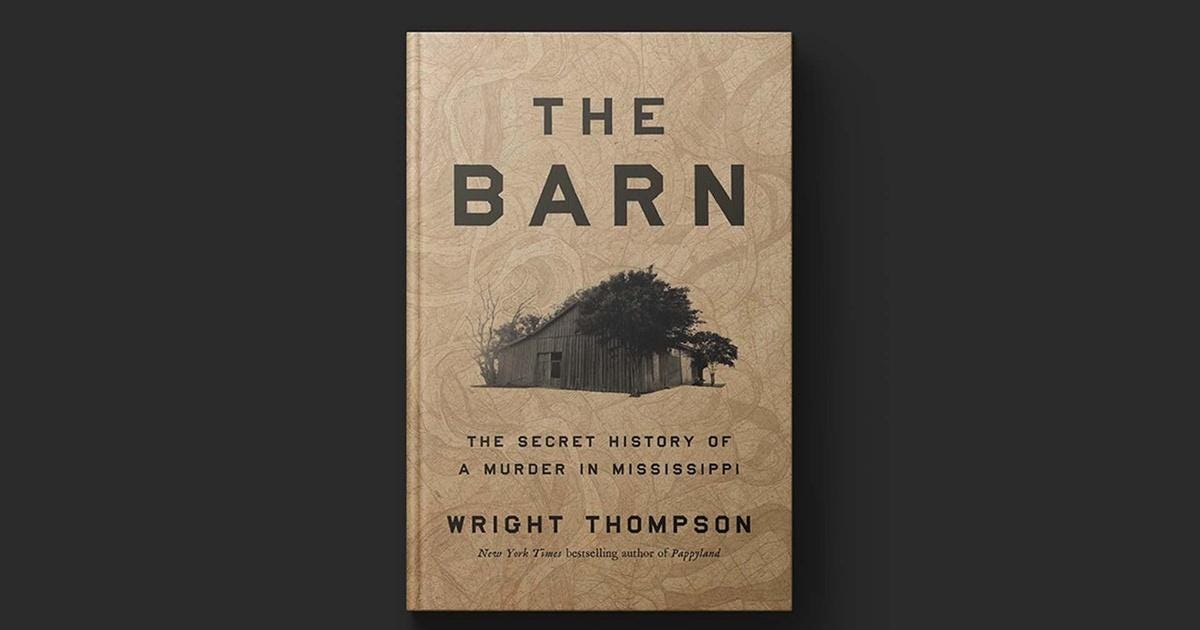Chasing the Tortured Ghosts of Jim Crow Mississippi
New book revisits and expands story of Emmett Till’s infamous lynching
There was a time when even talking about Emmett Till’s 1955 torture and murder was considered taboo. Then came an onslaught of publicity that helped inspire and shape America’s Civil Rights movement.
Today, anyone who thinks they know this terrible story will be surprised by Wright Thompson’s recent nonfiction book The Barn: The Secret History of a Murder in Mississippi (Penguin Random House), a powerful exploration of Till’s abduction, torture, and murder that delves into the historical forces that both prompted the crime and enabled much of the truth to be long concealed.
The Barn is not a simple rehashing of an old, familiar tale. Much of what Thompson relates is new, revealed through his remarkably discerning eyes.
Till, a 14-year-old African American boy from Chicago, was visiting relatives in Mississippi in the summer of 1955 when he was accused of making an inappropriate advance toward a white woman, Carolyn Bryant. This accusation led to his shocking abduction and murder by Roy Bryant, the woman’s husband, and his half-brother, J.W. Milam. Till’s body was then discarded in the Tallahatchie River, bringing national attention to the region and highlighting the deep-seated racial tensions in the American South.
As I read The Barn, I was struck by the depth and breadth of Thompson’s examination of the crime and Mississippi’s troubled past. His connection to the area (he is originally from Clarksdale) and his intimate knowledge of its turbulent history made it difficult to put the book down. It’s a compelling read that peels back layers of history, showcasing Thompson’s remarkable storytelling and investigative journalism skills.
I was introduced to Till’s tragic story as a third-grader in another Mississippi town. I was shocked to learn that Till was only a few years older than me when he was tortured and murdered and his body dumped in the Delta’s Tallahatchie River. The story opened my eyes to the depth of racism that existed in my state at that time. I was further saddened and outraged to discover that Till’s murderers were not held accountable for their actions, highlighting the deep-rooted injustices and inequalities that have plagued Mississippi history.
As I grew older, I assumed that I had learned all there was to know about this tragic story, but as I began reading Thompson’s book, I was surprised by what he revealed. One detail I learned is that there was not only a criminal coverup – in many cases, even discussing the murder was considered taboo in the Delta. Fortunately, that was not the case during my upbringing, but it seems safe to assume that many of the details Thompson reveals will be news to many people.
I also learned that at least eight individuals were present at the scene of the crime inside the barn where Till was tortured and killed, and that an 18-year-old sharecropper named Willie Reed later bravely bore witness to what he saw. Reed testified in court about what he saw, which came at a great cost: He was compelled to leave Mississippi and change his name due to the risks as well as the enduring trauma of what he had witnessed. Reed’s testimony was crucial in bringing the case to light.
The Barn delves into such long-concealed truths and cover-ups surrounding the murder, shedding light on both the crime and its lasting impact on the region and the nation. It portrays Till’s murder not as an isolated incident but as an outcropping of deep-seated racial tensions and injustices in the Jim Crow South. It also explores the history and transformation of the Mississippi Delta, highlighting how its wholesale devotion to cotton production led to the exploitation of its land and people, and the kind of historical amnesia that developed around Till’s murder, particularly among white residents. Thompson’s personal connection is key to this telling of the story.
Growing up near the scene of the crime, Thompson wrestled with his own ignorance of the case and his desire to uncover its hidden truths. He offers his thoughts on Mississippi’s complex identity, acknowledging both its good and bad aspects, and considers the difficulty of loving such a conflicted place. His personal journey mirrors the broader struggle to confront Mississippi’s history and work toward a more equitable future.
“This book is my attempt to go beyond what is known and explore the unknown registers of a killing that, when seen clearly, illuminates the true history of our country,” Thompson writes at the start of his book.
The Barn is a must-read for anyone who is interested in the history of the American South and the continuing struggle for civil rights -- particularly at a time when many of those rights seem to be under siege again.
Levon Campbell III is a graduate of Jackson State University and a multimedia journalist.
Image: Cover of The Barn, via Penguin Random House


